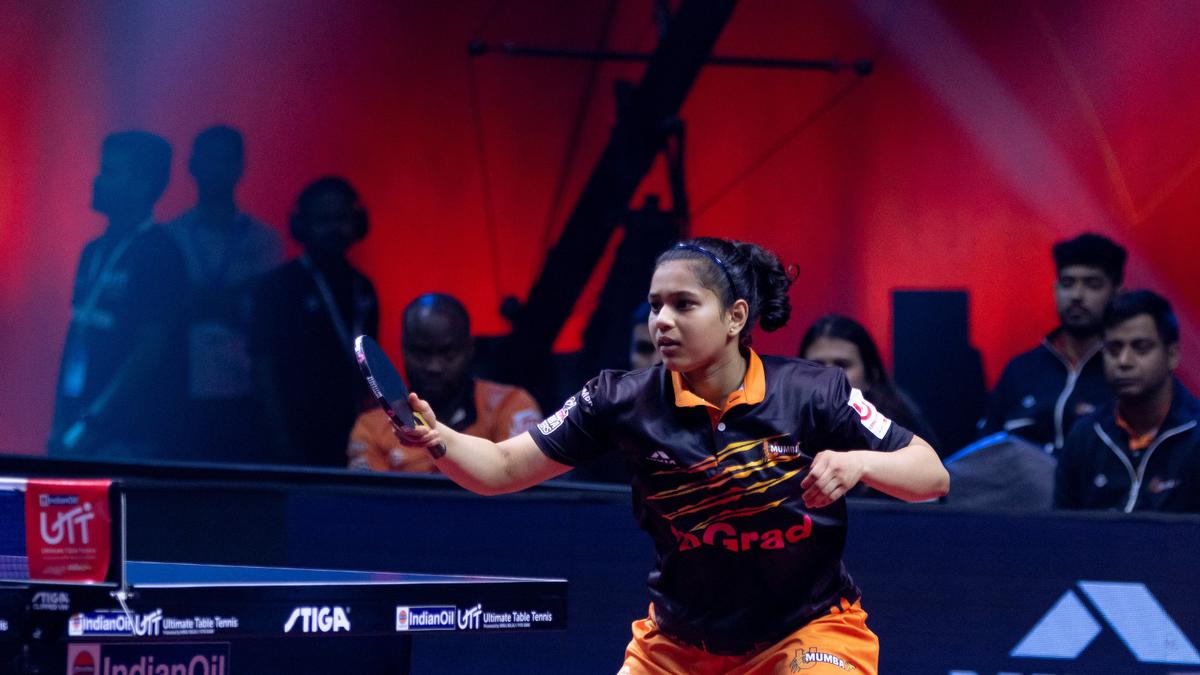
The unique format of Ultimate Table Tennis where every game matters
The Hindu
In UTT, every game counts equally, making the format tough for players used to race-to-three or race-to-five matches. PuneDiya Chitale, Manav Thakkar, Yangzi Liu, and Lily Zhang all experienced this difficulty, with Diya and Sutirtha Mukherjee's games deciding the tie. Benedikt Duda, an Olympic bronze medallist, explains that mental strength is key, as players must stay focused and not think about the scoreline.
Diya Chitale lost the deciding rubber versus World No. 32 Yangzi Liu 2-1 during U Mumba’s crunch match against Chennai Lions in the Ultimate Table Tennis (UTT) on Sunday night.
However, the youngster from Mumbai was the toast for her team and she was all smiles for having snatched a crucial game from her fancied opponent.
While Benedikt Duda, the German ace representing Lions, didn’t have too much reason to celebrate despite whitewashing U Mumba’s Manav Thakkar 3-0. After all, his team didn’t go on to win the tie.
That’s the unique aspect about the UTT format, where every game has equal weightage, even more than the result of a three-game match.
Everywhere else in the competitive table tennis arena, paddlers are used to playing race-to-three or race-to-five games in a match.
But in UTT, irrespective of the result, all three games in a match are played and each game is allotted a point for the winning team. Four of the six teams with the most number of points qualify for the semifinals.
“This format is unbelievably tough. We are used to playing best-of-five or best-of-seven matches and over here, it’s all about the mental game,” Diya, who made her UTT debut earlier in the week, told The Hindu.





















 Run 3 Space | Play Space Running Game
Run 3 Space | Play Space Running Game Traffic Jam 3D | Online Racing Game
Traffic Jam 3D | Online Racing Game Duck Hunt | Play Old Classic Game
Duck Hunt | Play Old Classic Game











